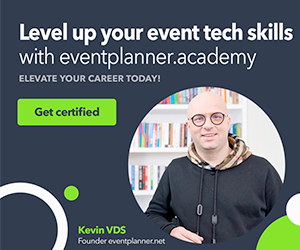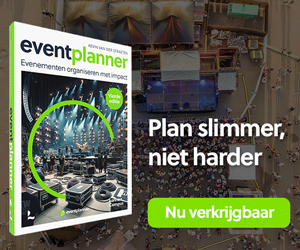Transcript
Hi Marc, welcome in our studio.
Today is the FRESH conference in Turnhout. It's nearby by here. That's also why we invited you to come over to our studio.
Marc, you are from Theater Stap. But I think a lot of our viewers won't know Theater Stap.
So, can you explain, what it is you do?
It's a big story. Turnhout is our base-town. It's our hometown. We were founded in 1985.
That's a while ago.
So, yes, that's a long time ago. If you go, giving lectures at university or college or high school, you realize that the people in the class were not born, at the moment our actors were already playing theatre.
So, we're a theatre group and we're a very special group. Because we work with actors with a mental disability. Many people have Down-syndrome, for instance. And it's our fascination, it's our desire, to bring them to a high level. Because we believe in their potential, as an artist on the stage. We believe that they have certain qualities, that are intriguing, that are very particular for them. How they deal with time, with space, with performing. And we try to manage them in a professional way, so they become real actors. For theatre, television, film. In Turnhout, but also in Belgium, Europe and the world.
How is it to work with those guys? Because, it is different than with a normal actor. Normal isn't the right word, I think. But with another actor.
I guess it's different, but I work already for more than thirty years with these guys. So, I don't see the disability anymore. And the mental disability, the mental thing, is not a problem.
I think their biggest handicap, is that they're slow. And the world is fast. So, that's the reason why I think they are put aside. We don't expect anything of you. We take care of you. You are not productive in this fast world.
But then again, Theater Stap puts them on stage. In the front.
Yes, and that's a nice thing to see. That they play for films. That they go to the film festival of Cannes. That we went to Iran and Korea. And these guys play in New York and Brazil, as a professional artist.
People pay a ticket and it's in the regular circuit. It's not at a special festival. It's just at the regular dance houses or the regular theatre houses. So, that is maybe caused by a stubborn belief and....
Yes, we want to share what we think is possible with them and we always say: first believing and then we'll see. We turn a lot of things around. And, of course it's different, I guess. We need more time. That's the basic idea. If you really want to invite them as creative guys. Not like: you have to wear this costume and do this. If you really want to take them seriously, as creator, as creative people, you have to take time.
But, at Theater Stap, they are in charge? They do the creative process? Or how is your role, for example?
I'm artistic director and I invite guest directors. And everybody has his own way of working. And that's important. In this way, our actors can deal with a lot of different visions about theatre. Different ambitions. So, I guess they need a director. If they're left on their own, as a collective, I think the deadline of a first night is going to be difficult. There's somebody who has to say: okay, this is...
But, with the right guidance, you can help them steer the process.
Yes, yes.
But then, the biggest question is: what is a theatre company like yours, like Theater Stap, doing at FRESH, a conference for event organizers, meeting planners?
To organize better meetings and events.
Well, we like to come out of our comfort zone. We like to...
We started with the idea of theatre, the stage. Then slowly we began to play, more and more, in short films and feature films.
And then we started to do animation. On festivals. Really mingle with the people. Sometimes being 1-on-1. And we saw that it is very confronting. People are not sure anymore, of themselves. They are not used to dealing with people with a mental disability.
They don't know how to behave then?
Yes, sometimes they are not at ease anymore. They are like: wow, somebody with a mental disability starts to do something.
But, when it's fun, when it's a kind of animation, after all, you say: wow, this was fun. So, we like the idea of playing as an actor on festivals, between the people. And in this way, we were asked, several times, to be at a party of the staff, or employers of a factory. Or at conferences.
Sometimes it's functional. Sometimes people say: we have a problem. These people have to move to another venue. And so, in this way, sometimes, we have funny guides. In a funny way, we can divide groups.
For instance, we did that with a kind of medical investigation. People come and take measurements and ask you questions and you're like: wow, what is this? What's happening?
But, in this way, the whole...
A lot of people were divided in different groups. They were guided to other venues. And it's fresh. That we do this. We are the expertise. We know how the conference is going to develop.
And take people out of that comfort zone.
Yes, so, it's fun for us, now and then, to do other things as well.
And I think it's, for a conference, also fresh, that you have something that is unexpected. Because you go to a conference and everybody's briefing communication or IT or new developments in...
And it's nice. You can make contact with a lot of people, who have the same ambition. But it's good, that it's something like...
Yes, and a lot of conference goers are on automatic pilot. Going from one room to the next. Having their coffee breaks. And an element that takes them out of that routine, can be surprising, I think.
Yes, and apart from the artistic quality, we want to make these guys visible. We want to put them in the picture. And a conference is a place where many people are. So, they are in the picture.
Is it also about changing people's mind and behaviour towards people with a disability?
Maybe. We are not welfare workers. We have an artistic aim. But we see that, off course, by believing in these people and giving them a professional career and making them visible, off course you have an influence on the perception of people.
I saw, on the program for today, that you guys will also be performing. A play.
Yes.
That's the best way, the only way, to really talk about our work. The best ambassador is not me, it's them.
Let them do their thing.
And let them play, let them do what they are good at.
And that's the most convincing. To see a short play of twenty minutes. And we're going to present a movie of fifteen minutes. And I think action speaks louder than words.
Okay Marc, thank you very much for coming over to our studio.
Okay, thank you.
And you at home, thank you for watching our show. I hope to see you next week.







